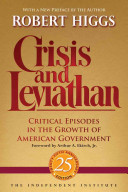
Global Warning
First it was Global Warming, and the Seas Were Going to Rise and Drown Us.
The seas didn’t rise. The Maldives are still there.
And Global Warming is now Climate Change.
Then a Great Shelf of Ice was supposed to dislodge from a Melting Antarctica,
fall into the water, and… the Seas Were Going to Rise and Drown Us.
A little back story: After fears in the 1970s of Global Cooling had abated,
Y2K was going to destroy civilization in the year 2000,
and then Second Hand Smoke was going to kill us.
But from there on out, the playbill got a lot more crowded,
as various performers realized something a lot of us fully allow
both In and Out of Government, and On Both Sides of the Question.
And that is that “A Crisis is a Terrible Thing to Waste”.
So next up, and coming soon! are melting methane beds, from deep within a dying ocean…
expect a cold vortex pushing south, down from Canada, in between
summertime projections of starving, drought-stricken farmers moving up from the south,
a flood of undocumented aliens carrying ebola,
(insert where appropriate: the dissolution of our shorelines and possibly Manhattan)
ISIS fanatics running rampant across all of the mid-East, and thence to disseminate by air to everywhere where they might find you, and an atomically armed Iran.
Exacerbating the crumbling financial picture from within the European Union,
either Greece, Italy, Spain, or all three could default. Or Germany – that economic engine – could pull out altogether leaving the whole European Consortium to collapse like a circus tent.
The High Pressure Fracking for oil in the Fly-over States, which could possibly destroy all potable water,
is also challenging the dominance of the former oil-rich countries, who came about their oil too easily,
putting their regimes in jeopardy creating more and more instability,
in a soon to be nuclear armed Near East.
While the newly created, well-paying blue collar jobs and cheaper oil in the heartland
is fuelling the rush to more fracking, even cheaper oil, and ever more CO2,
plus a lot more money-enhanced Bubbas , exacerbating the chances, Climate Change Will Occur, as it always has in the past, or that we will Be in Denial all the while we have our air conditioners turned up high.
So maybe yes, at least, to that.
“97 out of 100 scientists believe excess C02 causes Global Warming.”
This is what we are told, even by the President.
What was actually determined was that,
“97 out of 100 scientists believe excess C02 contributes to Global Warming.”
So, say the Doubters, “Just me being alive contributes to Global Warming, as does my friend’s pug dog’s farts.”
“And the President contributes to Global Warming every time he speaks!”
And probably much moreso than me. Nevertheless,
by the President’s measure, I’d guess we could say that he personally has caused Global Warming.
And that 97 out of 100 scientists would agree on this.
Fair enough.
Picture from Google Images

